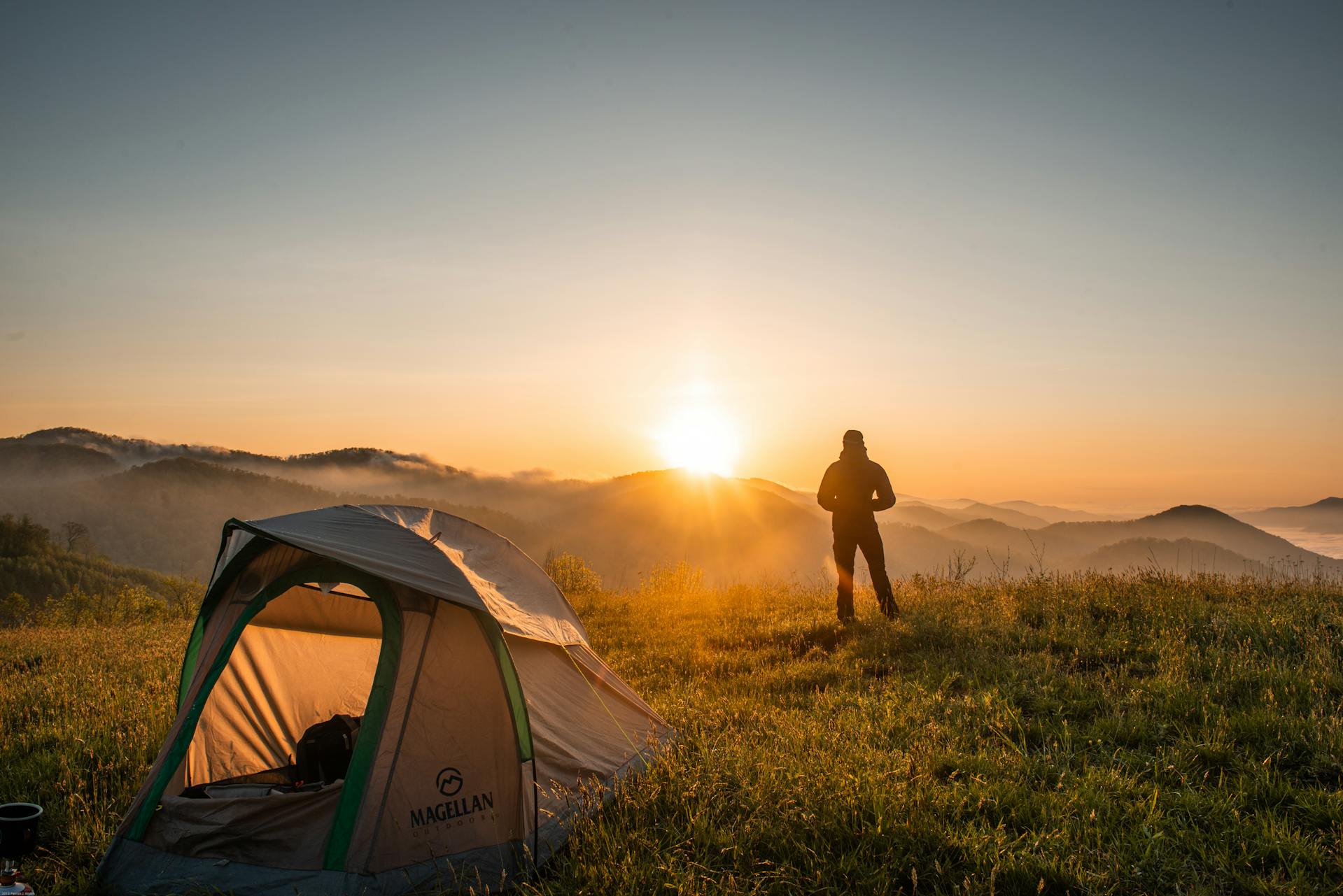Heading out for a hiking trip?
A solid tent can be the difference between waking up refreshed or spending the night fighting off rain and cold.
Trust me—I’ve been camping for 17 years, through every kind of weather, and I’ve tested more tents than I can count.
Let’s cut through the noise and get to the good stuff. Whether you’re hiking solo or with a crew, here’s everything you need to know about choosing the best tents for hiking.

What Should You Look For in a Hiking Tent?
Not all tents are created equal, and your needs will depend on where you’re going and who you’re with.
Here’s a quick guide to what matters most:
1. Lightweight Design
Weight is everything when you’re hiking.
Carrying a heavy tent for miles isn’t fun.
Look for options that are lightweight but still tough enough to handle the trail.
2. Weather Resistance
The weather will surprise you.
A sudden downpour or strong winds can ruin your hike if your tent isn’t built for it.
Focus on:
- A solid rainfly to keep water out.
- Durable poles that won’t snap in high winds.
3. Easy Setup
At the end of a long day, the last thing you want is a complicated setup.
Quick-pitch tents or pop-up options save time and energy.
Top Picks: Best Tents for Hiking
Here’s a breakdown of the best hiking tents for different needs.
1. For Solo Hikers
Solo hikers need compact, ultralight tents.
Every ounce counts when you’re packing for one.
Best Budget Option
- Best Hiking Tent Under $100
Affordable tents that balance weight and durability without costing a fortune.
Quick Setup for One
- One-Man Pop-Up Tent
These are perfect for quick trips. Easy to carry, and even easier to pitch.
2. For Groups or Families
Camping with friends or family? You need space—lots of it.
Spacious Options
- Ozark Trail 6-Person Cabin Tent
Great for group adventures, with room to spare.
Budget-Friendly for Groups
- Best Camping Tents Under $300
High-quality options that fit your wallet and your crew.
3. For Winter Hikers
If you’re hiking in snow or extreme cold, your tent needs to handle the elements.
Top Pick for Winter
- Best Tents for Snow Camping
Designed to keep you warm, dry, and safe when temperatures drop.
Heavy-Duty Protection
- Extreme Cold Weather Tents
These are built for survival in the harshest conditions.
Features to Look For in Hiking Tents
When you’re choosing a tent, it’s not just about size or cost.
Here are some features that make a difference:
1. Ventilation
Nobody likes waking up to condensation dripping inside their tent.
Look for options with mesh panels and vents to keep air flowing.
2. Durability
Tents take a beating.
From rough terrain to strong winds, the material matters.
Choose tents made from ripstop nylon or polyester for extra strength.
3. Compact Storage
A tent that packs down small is easier to carry, especially if you’re hiking for days.
How to Pick the Right Tent
1. Know Your Hike
Where are you going?
A desert hike needs different gear than a snowy mountain trek.
Plan ahead and match your tent to the environment.
2. Test Before You Go
Set your tent up at home before you hit the trail.
This saves time and ensures everything works as it should.
3. Read Reviews
Learn from other hikers’ experiences.
For example, check out this detailed Ozark Trail 3-Person Dome Tent Review.
My Personal Favorites
For Beginners
- Best Camping Tents for Beginners
Simple and reliable, these are perfect for first-timers.
For Luxury Camping
- Luxury Camping Tents for Glamping
If you want to combine style and comfort, these are worth checking out.
For Budget Hikers
- Best Camping Tents Under $200
Affordable without compromising on quality.
Real-Life Tips for Camping Like a Pro
1. Pack Smart
Your tent is just one piece of the puzzle.
Bring a lightweight sleeping bag, groundsheet, and something extra like a Portable Cot for added comfort.
2. Weatherproof Your Gear
Even the best tent can leak in extreme rain.
Use a waterproof spray on seams and keep your essentials in dry bags.
3. Practice Setup
Struggling with tent poles in the dark is no fun.
Practice setting up your tent a few times before you go.
FAQs About Hiking Tents
Q: How do I choose the right size tent?
Think about how many people will be using it.
If you’re hiking solo, a one-person tent works.
For groups, go up a size—especially if you want room for gear.
Q: Are lightweight tents durable enough for long hikes?
Yes, but choose materials like ripstop nylon.
Lightweight doesn’t mean flimsy if you pick the right brand.
Q: What’s the best tent for a hot-weather hike?
A tent with great ventilation is key.
Check out the Best 2-Person Tent for Hot Weather for top picks.
Pros and Cons of Hiking Tents
Every tent has its highs and lows. Here’s a quick overview:
Pros
- Lightweight designs are easy to carry.
- Durable materials mean your tent lasts longer.
- Options for every kind of hiker—from solo adventurers to big groups.
Cons
- Ultralight models can be expensive.
- Some budget tents lack premium features like full rain protection.
- Larger tents can be bulky, even when packed.
Wrapping It Up
A great tent can turn a tough hike into an adventure you’ll never forget.
With the right features and the perfect fit for your needs, you’re set for any trail.


